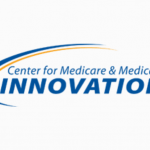– The HealthCare Executive Group unveils its annual 2020 HCEG top 10 critical challenges, issues and opportunities healthcare executives expect to face in 2020.
– Over 100 C-Suite and director level executives were presented with a list of over 25 topics. Initially compiled from webinars, roundtables and the 2019 Industry Pulse Survey.
After 2.5 days of facilitated interactive discussions during this week’s HCEG Annual Forum in Boston, over 100 healthcare c-suite and director level executives voted and then ranked their top 10 critical challenges, issues and opportunities they expect to face in 2020.
Executives from payer, provider, and technology partner organizations were presented with a list of over 25 topics. Initially compiled from webinars, roundtables and the 2019 Industry Pulse Survey, the list was augmented by in-depth discussions during the Forum, where industry experts explored and expounded on a broad range of current priorities within their organizations. The HCEG Annual Forum concluded with HCEG Board Members announcing the results of the year-long process that determined the 2020 HCEG Top 10.
Want to publish your own articles on DistilINFO Publications?
Send us an email, we will get in touch with you.
After its initial delineation during this week’s HCEG Annual Forum, the 2020 HCEG Top 10 serves as the basis for the coming year’s discussion, industry-wide analysis and in-depth research performed by sponsor partners, member organizations and industry researchers.
Here are the 2020 HCEG Top 10 Challenges, Issues, and Opportunities for healthcare executives:
1. Costs & Transparency – Implementing strategies and tactics to address the growth of medical and pharmaceutical costs and impacts to access and quality of care.
2. Consumer Experience – Understanding, addressing and assuring that all consumer interactions and outcomes are easy, convenient, timely, streamlined, and cohesive so that health fits naturally into the “life flow” of every individual’s, family’s and community’s daily activities.
3. Delivery System Transformation – Operationalizing and scaling coordination and delivery system transformation of medical and non-medical services via partnerships and collaborations between healthcare and community-based organizations to overcome barriers including social determinants of health to effect better outcomes.
4. Data & Analytics – Leveraging advanced analytics and new sources of disparate, non-standard, unstructured, highly variable data (history, labs, Rx, sensors, mHealth, IoT, Socioeconomic, geographic, genomic, demographic, lifestyle behaviors) to improve health outcomes, reduce administrative burdens and support transition from volume to value and facilitate individual/provider/payer effectiveness.
5. Interoperability / Consumer Data Access – Integrating and improving the exchange of member, payer, patient, provider data and workflows to bring value of aggregated data and systems (EHR’s, HIE’s, financial, admin and clinical data, etc) on a near real-time and cost-effective basis to all stakeholders equitably.
6. Holistic Individual Health – Identifying, addressing and improving the member/patient’s overall medical, lifestyle/behavioral, socioeconomic, cultural, financial, educational, geographic and environmental well-being for a frictionless and connected healthcare experience.
7. Next Generation Payment Models – Developing and integrating technical and operational infrastructure and programs for a more collaborative and equitable approach to manage costs, sharing risk and enhanced quality outcomes in the transition from volume to value. (bundled payment, episodes of care, shared savings, risk-sharing, etc).
8. Accessible Points of Care – Telehealth, mHealth, wearables, digital devices, retail clinics, home-based care, micro-hospitals; and acceptance of these and other initiatives moving care closer to home and office.
9. Healthcare Policy – Dealing with repeal/replace/modification of current healthcare policy, regulations, political uncertainty/antagonism and lack of a disciplined regulatory process. Medicare-for-All, single-payer, Medicare/Medicaid buy-in, block grants, surprise billing, provider directories, association health plans, and short-term policies, FHIR standards, and other mandates.
10. Privacy / Security – Staying ahead of cybersecurity threats on the privacy of consumer and other healthcare information to enhance consumer trust in sharing data. Staying current with changing landscape of federal and state privacy laws.
Date: September 18, 2019
Source: Hit Consultant







